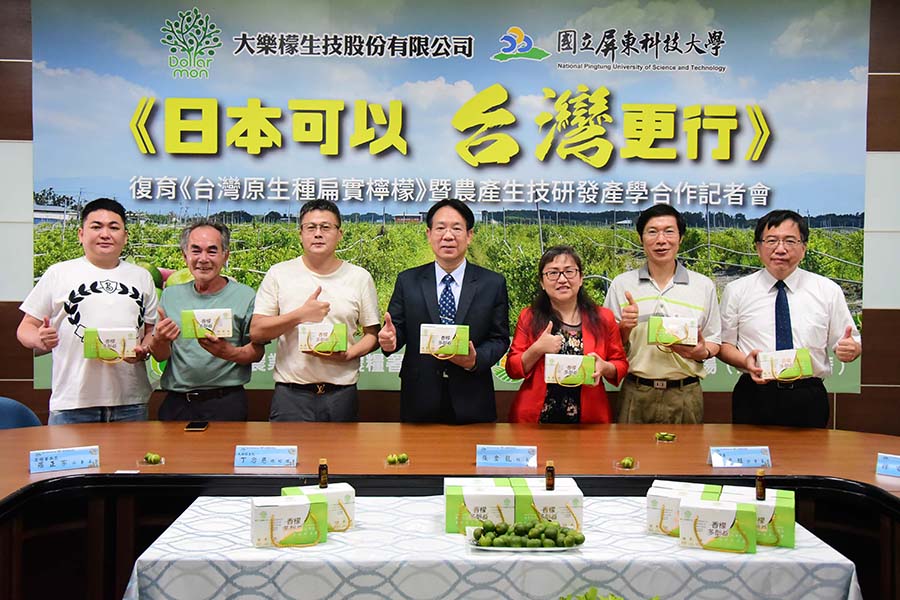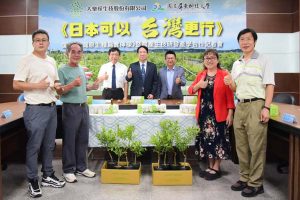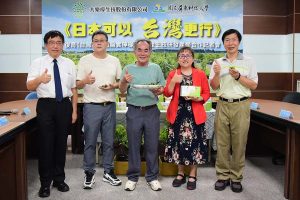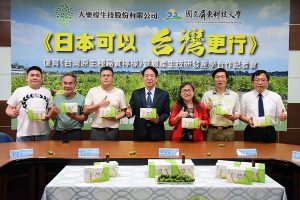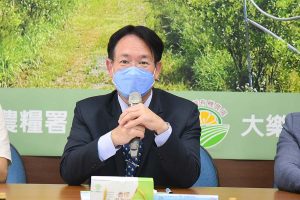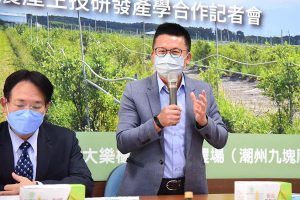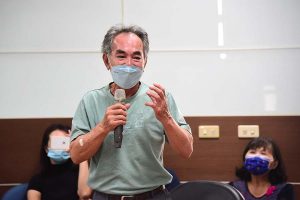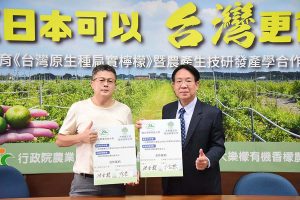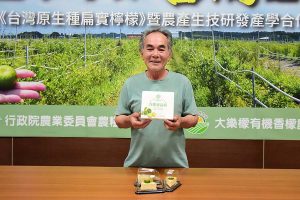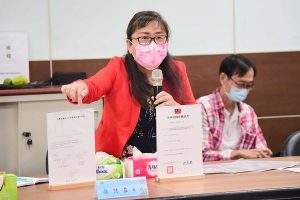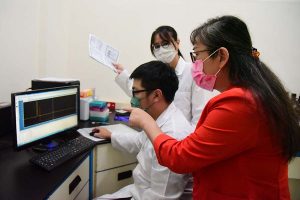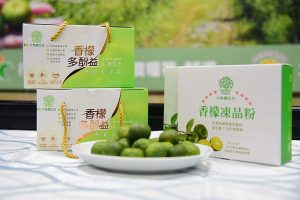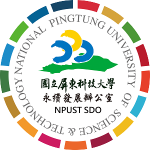Once nearly extinct, Taiwan’s native lime variety, Citrus depressa, is experiencing a cultivation revival thanks to the hard work of Shun Ge, the founder of the Dollarmon Citrus Depressa Organic Farm. The lime, which is also referred to as the Taiwan tangerine, has become a focus of research at the NPUST Department of Biological Science and Technology. Two professors from the department, Hsueh-Ling Cheng and Chi-I Chang, have been investigating the bioactive properties of the lime and cooperating with Shun Ge to develop a more diverse set of value-added products. On November 8th, results of the cooperation were published at the meeting room in the NPUST Department Biological Science and Technology and a technology transfer agreement was signed between the NPUST and Dollarmon.
Government officials, Dollarmon representatives and executives and professors from the College of Agriculture were present to witness NPUST president Chin-Lung Chang and Dollarmon founder Shun Ge sign the agreement.
At the ceremony Chang said: “we are very happy to be able to execute this industry-university technology transfer with Dollarmon Citrus Depressa Organic Farm. Using the strengths of our school’s Department of Biological Science and Technology, we can add value to Taiwan’s organically cultivated limes and create more diverse outlets for Taiwan’s agricultural products.”
Agriculture and Food Agency deputy-director Chih-Wang Yao also commented on results, saying “we are glad that Taiwan’s native Citrus depressa is once again taking root in Pingtung and Kaohsiung. And now, the Taiwan tangerine will be used for more than making traditional fruit juice, but will also be used to develop a series of organic products.”
Dollarmon general manager, Nien-tzu Ting, expressed appreciation for the developments, saying “we are very honored to be cooperating with NPUST and to see our produce undergo objective precision analysis so that we can provide greater health assurance to consumers. We look forward to creating a better environment for Taiwan’s agricultural products together.”
Through their research, the professors at NPUST discovered that in addition to the active ingredients in the peels, the juice of organically cultivated Taiwan tangerines also contains high amounts of hesperidins (aka vitamin P). Hesperidins have a variety of physiological functions, including maintaining osmotic pressure, enhancing capillary toughness, shortening bleeding time, and lowering cholesterol. They have also been found to have anti-obesity and anti-cancer properties. NPUST will be providing patented fermentation technology which uses a probiotics strain that can produce exopolysaccharide, which has been confirmed help lower blood sugar levels (Taiwan patent number I562780).



